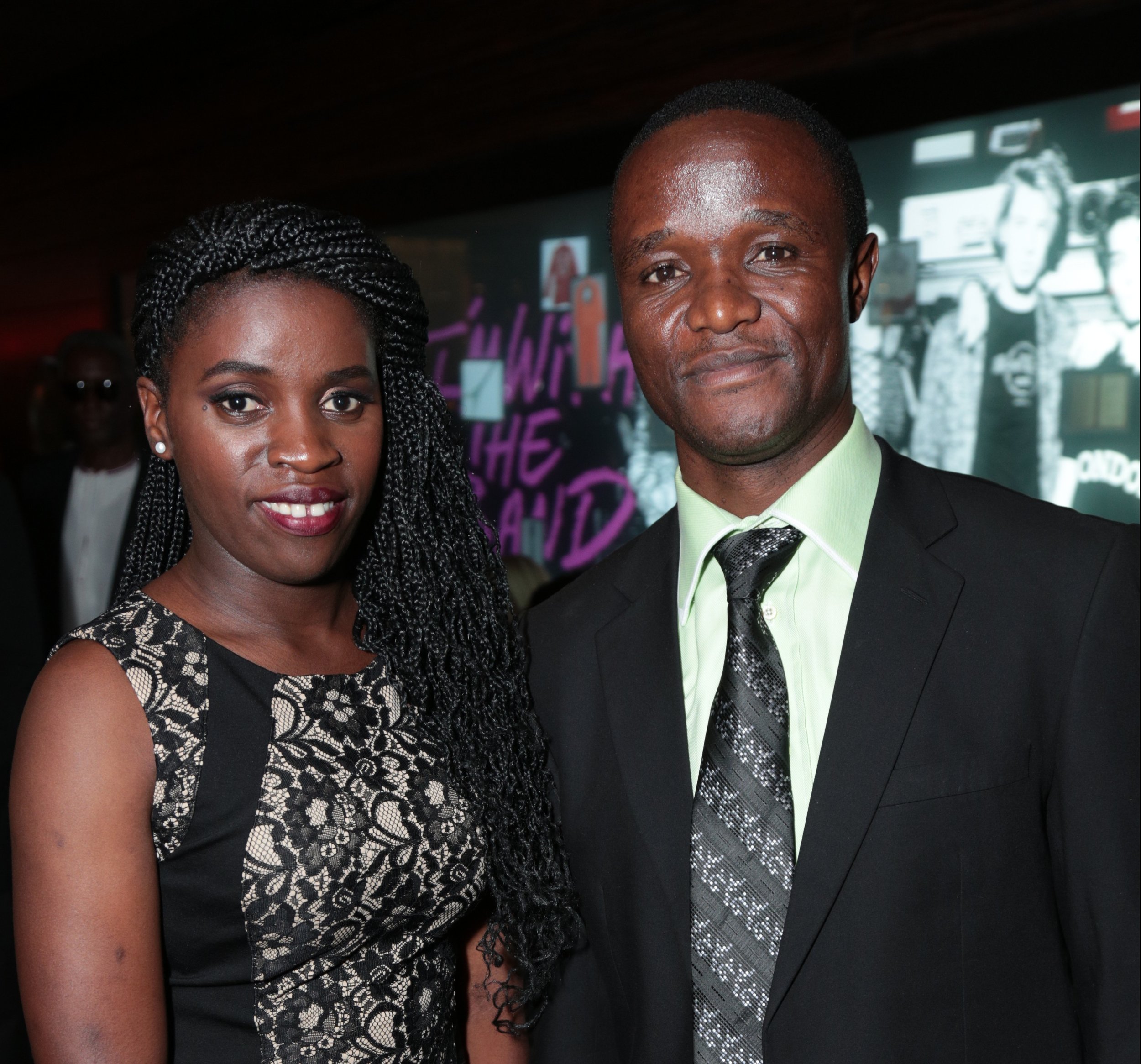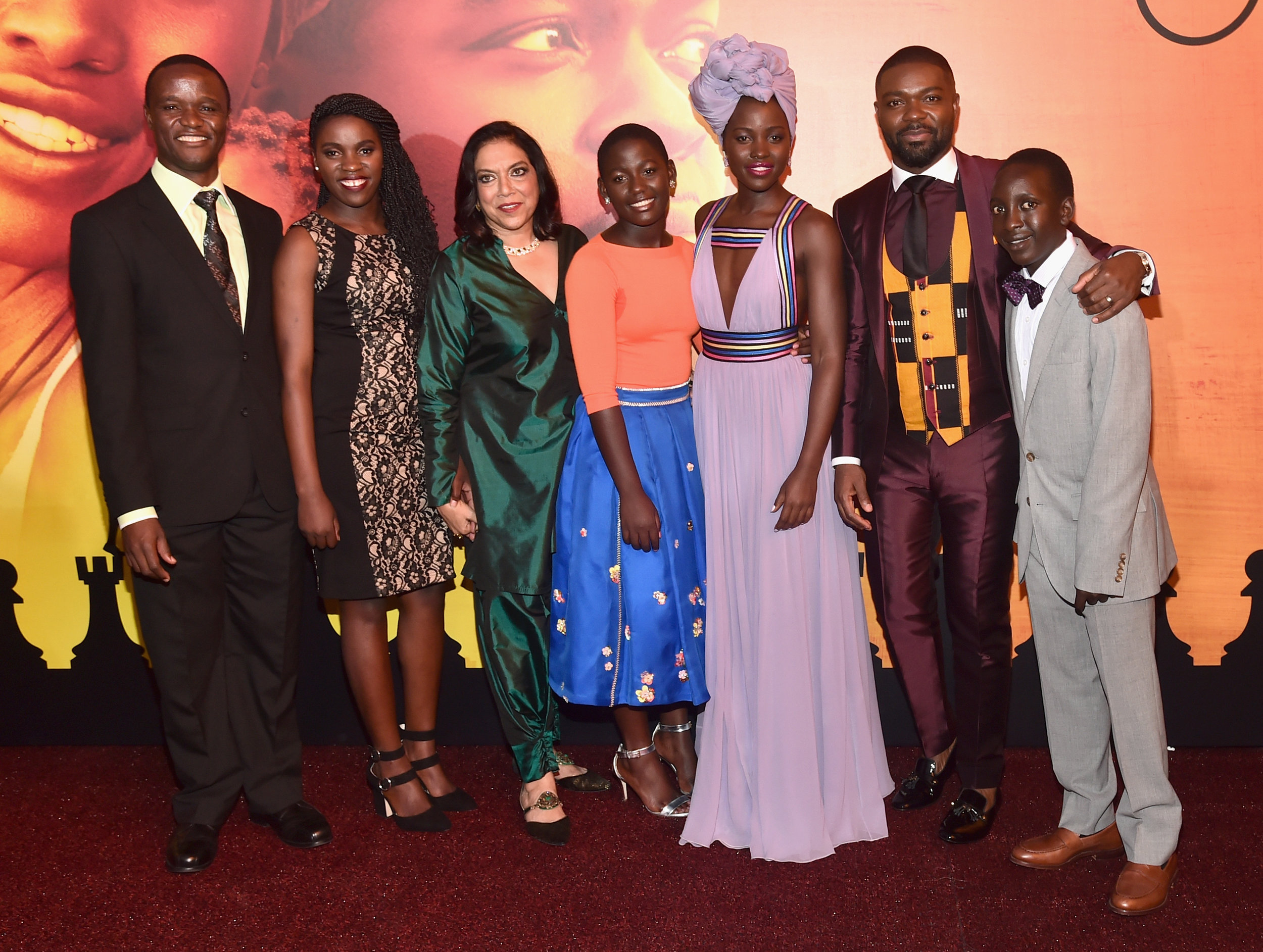Exclusive Interview with the REAL Phiona Mutesi and Robert Katende
I was invited to the #QueenofKatweEvent by Disney. Although all expenses were paid, all opinions are my own.

When I first learned that Queen of Katwe
When I first learned that I was heading to Los Angeles for the Queen of Kate Event, I was beyond excited. When we learned that we were going to be interviewing the REAL Phiona Mutesi and Robert Kantende? I couldn't believe it. To be in the same room with these truly inspiring people was something I couldn't wait for.
During my last trip to Los Angeles, I had a similar opportunity of interviewing the real people that the movie, Million Dollar Arm, was based on. These interviews, not only with the cast but with the real people behind the movie— the people who inspired the movie and who it's based off of— are truly one of a kind. They are so rare and so special and so when we were listening to Phiona and Robert speak, I couldn't help but get teary-eyed because their stories are so beautiful.
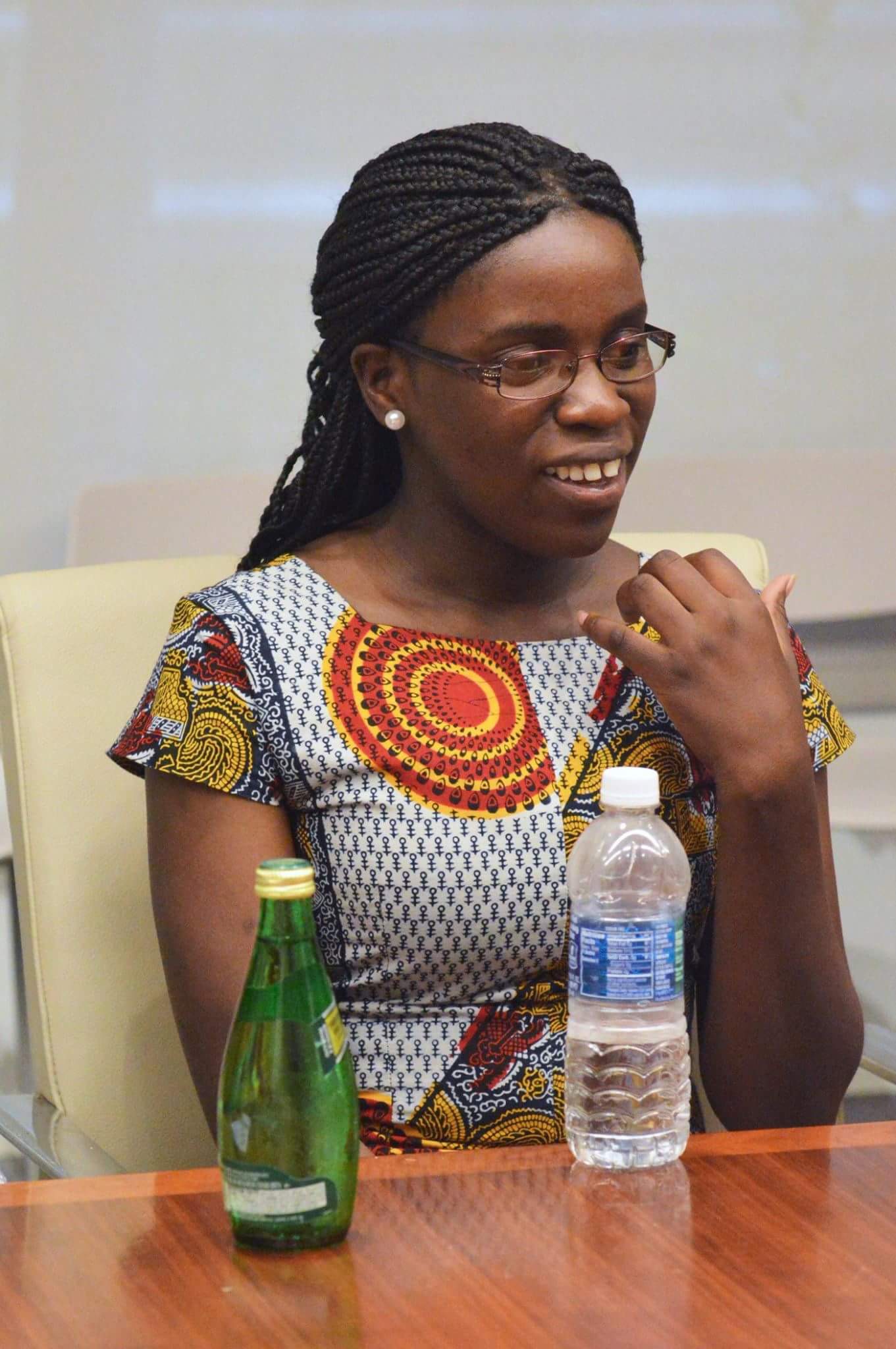
How does it feel to see yourself portrayed on screen?
Phiona Mutesi: Well, it’s interesting, I cannot believe it. I just cannot believe it.
Are you a Grand Master?
Phiona Mutesi: No, I am a Candidate Master.
What life lessons do you think children and adults can learn from chess?
Robert Katende: There are several, actually. You can tackle abstract thinking, problem solving, decision making, weighing options, and even responsibility because chess kind of mentors you in finding value and where you have to get comfortable with your decisions, and don't simply make moves. You should have a plan, you should have an objective. It gives you an opportunity to where you can have ideas and try to figure out how to bring them to reality. So you must get input in the integration of these values and principles from the game into your lifestyle.
Is the movie as true to life as it could be?
Phiona Mutesi: Well, I liked it when I saw it. I couldn’t think that I was watching myself. It was my first time in the big theater. I was on the Red Carpet; I believe it was just my first time. I’ve never been in such a situation. But I feel like I shouldn’t be there, like, shouldn’t it be someone else?
You’re supposed to be here. You belong here.
Phiona Mutesi: But it feels too huge for me.
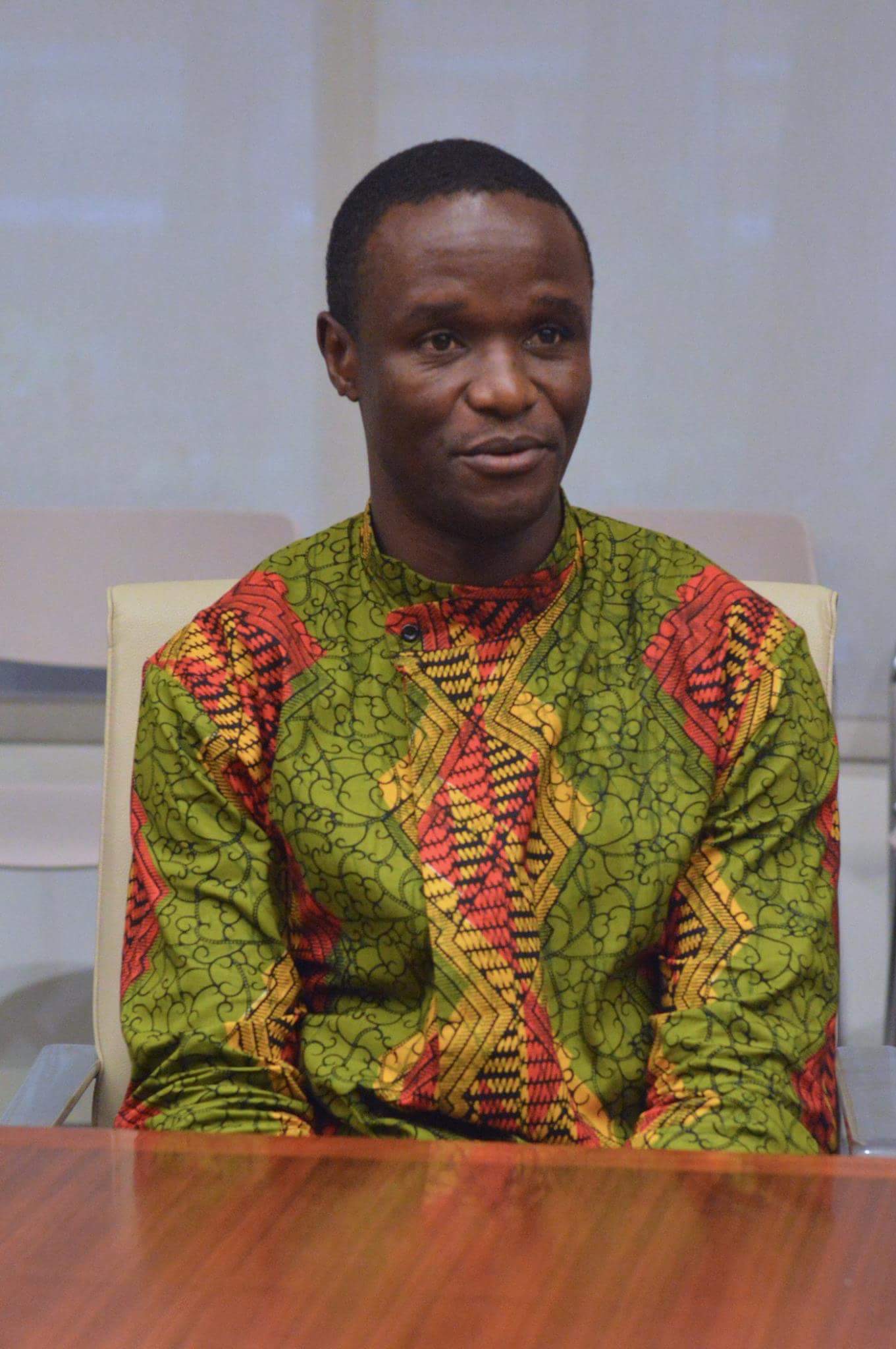
Can you talk about mentorship and how that played a role in your life?
Robert Katende: Yeah, surely it is something remarkable. They really taught me so much about tolerance, patience and embracing each one's ability. Because when it comes to the programs, it's not so much entailed on chess but it's more of focusing on an individual. They have different abilities, different perspectives of life, and now you find yourself in this dilemma where you have to look at each child as an individual. And to me, it's more of a community investment. You really choose to be in there and see how this important to them.
They are now the ones leading most of the programs because they have turned out to be good leaders. I remember ten years back, the good example was Richard. So this is the young boy who volunteered to keep our chess board. One time, he came on and said, “Coach, I think we need to find somewhere else to keep our board.” Why? And then he said, “When my uncle comes back home, he comes back drunk, and he fights with auntie, and so they will break our board.”
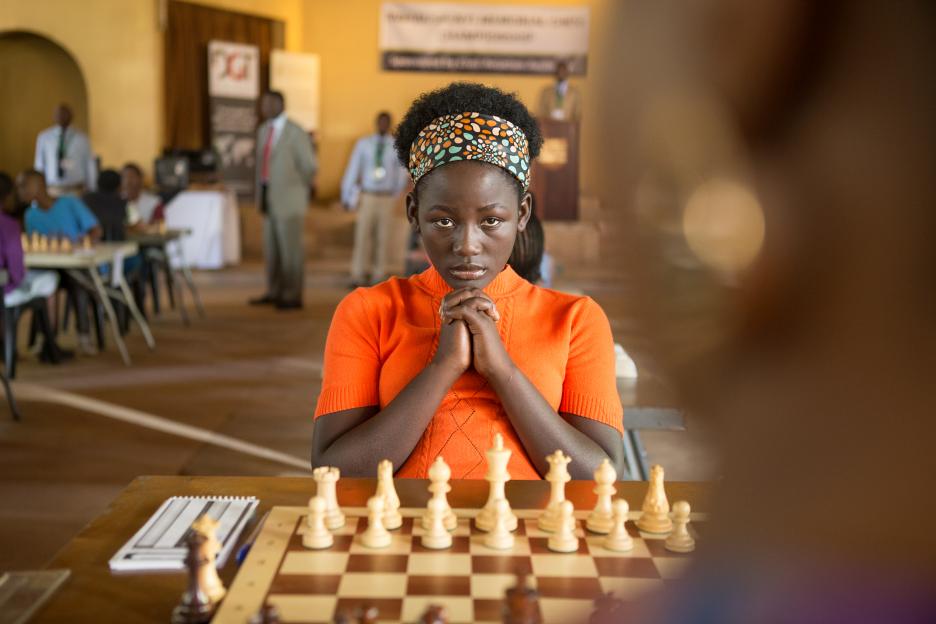
Now, this really hit me and I almost shed tears because for him, it was for the board, and me, I was moved to— what kind of trauma does this child go through at home? So it takes you beyond what you think. When it comes to mentorship, I many times find myself going beyond the actual child, and going even to the people behind the child. Because some of the issues are actually from the guardian, or the uncle, or the auntie, they have that role that they play. Sometimes once you see this child going through, they're just symptoms, and they have a cause behind it. And sometimes you cannot keep on addressing the symptoms and that forces you to go beyond.
But mentorship is not something really you can just say it's on and then off. It's a an ongoing process. It’s not a short case kind of situation, but you're more like living with them on a daily basis, and they learn the positive way how to react to grief, how to respond to calamites if they occur. So you are their only model. They're there to pick every lesson from you, so they become part of you. You open your home. It is an ongoing selfless living.
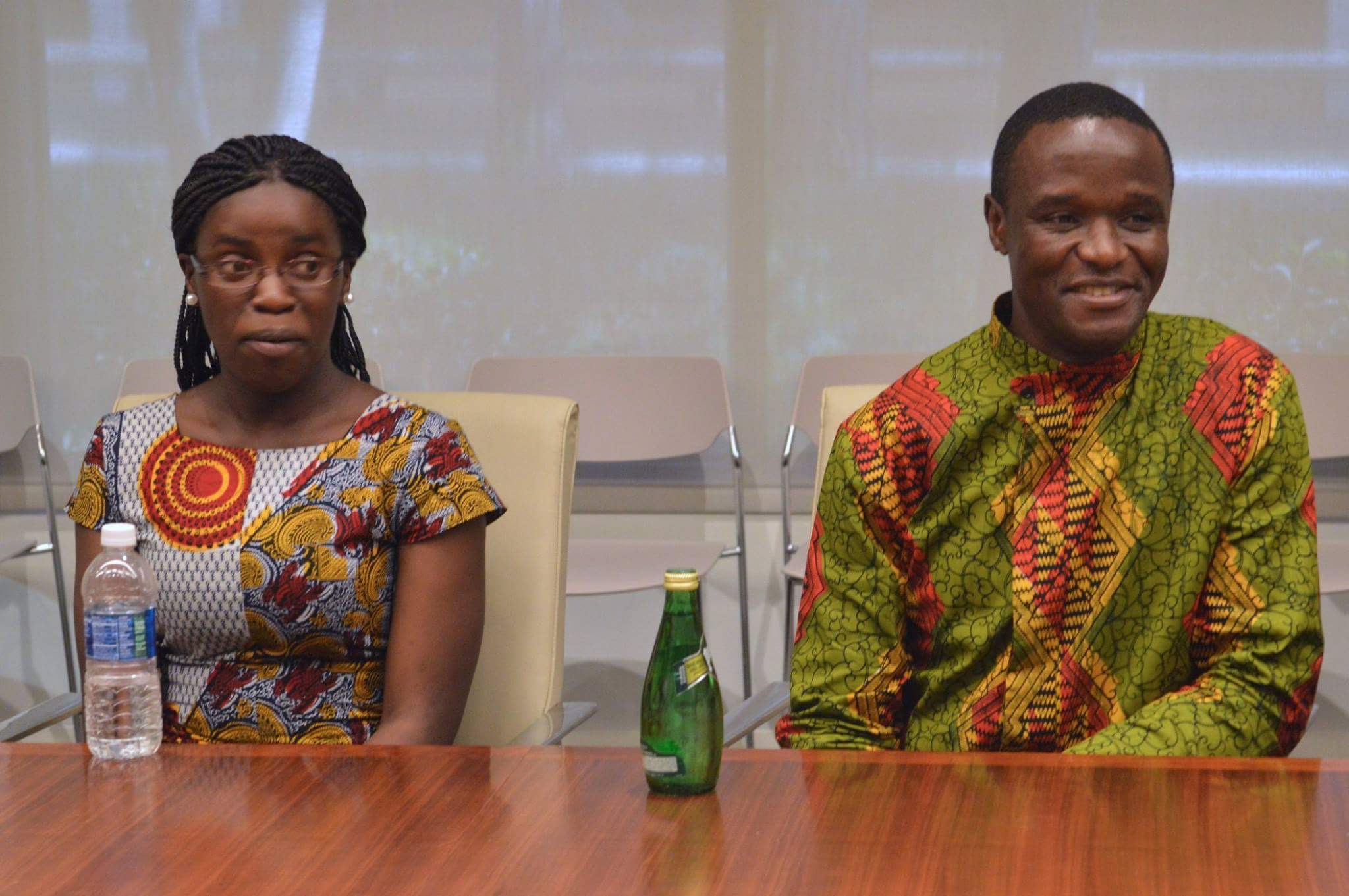
Can you tell us where you started with The Pioneers and where you are now with your chess academy?
Robert Katende: Yeah, I started, in 2002 and, it really started stabilizing in 2004. There were six kids and I've been dealing with them for over twelve years. Phiona, she was nine and now she's twenty. So they have now become young adults.
And when I took them they had not even schooling. One is now qualified as a physics and math teacher. One is now just graduating. Benjamin, Phiona, just completing high school to go to university next year. So it's really a remarkable journey, for me to see them. And, besides they have professional kind of goals, they are naturally becoming leaders.
And they reach out to the program, like Phiona, it's not just like coincidence, but it's like a strategy on starting to give them some sense of responsibility, and then also enabling them to realize that they have something they can really offer at even their lower level. So they are naturally in this that they should grow. I'm so grateful because I kind of see myself like I have not planned. Like, even right now, we are weighing all this with over eighty kids packed in.
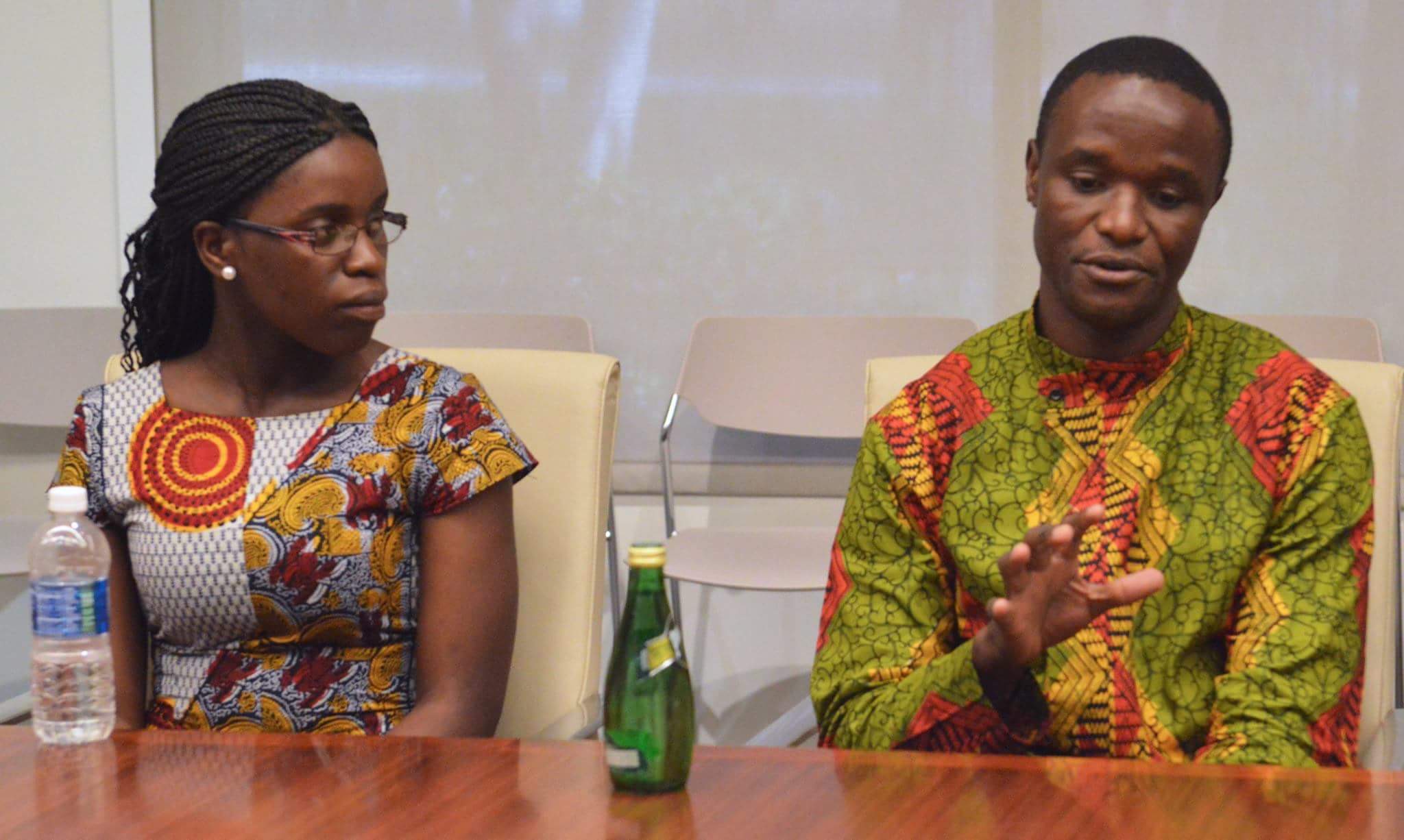
How do you react to fear or when you feel defeated?
Robert Katende: In most cases it is fear. It hinders a lot especially for the children. They have nothing to relate to, no one has ever done it. They cannot connect. So it's more like, no, you step out. You be there first. You take that responsibility. We just offer real-life situations.
The question now is, what do you think is going to change us? You see yourself, ask the person, what's going to change this turnaround, to make this happen. So it's like you start to instill a sense of discipline and responsibility. You need to see it from their perspective.
I'm a typical orphan, I never knew that things would ever change. But in every case, I had to keep on trying. I'd rather try than fail to try and say it didn’t work out. If it doesn't happen, I will have done my part. So that's the kind of approach I take.
Phiona Mutesi: My reaction whenever I would lose a game, most of the time I would cry. With the pain of pressure, that's when I cry most. Whenever I was in Uganda, I could do most of my games, so here I am coming to Russia, I forgot about that this is a different experience from Uganda. So from that, I think I got an experience, a great one, and got to learn everything, so it doesn’t affect me anymore. Whenever I lose, it’s just part of the game. I just had to learn from that.
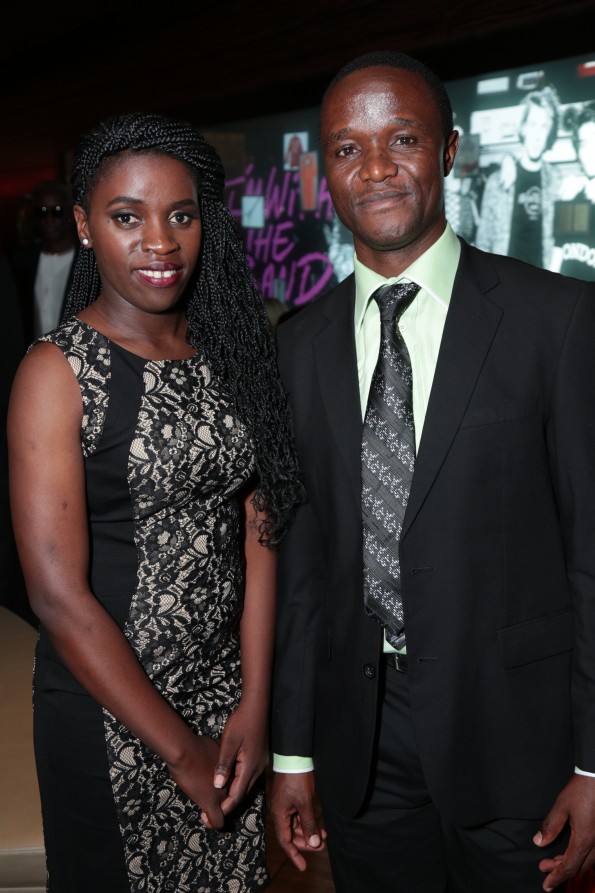
Coming to the U.S., what are the cool things you’ve gotten to do, so you can brag about it to your friends? Did you have French fries with ketchup?
Phiona Mutesi: I've been having that and I got tired of it. I think the coolest part is walking on the red carpet.
What advice would you give to a young girl that's scared of stepping out?
Phiona Mutesi: I'll say to most people when they're having problems, it just takes hope. Have hope in everything you're doing, and just be hard working. Have a dream.
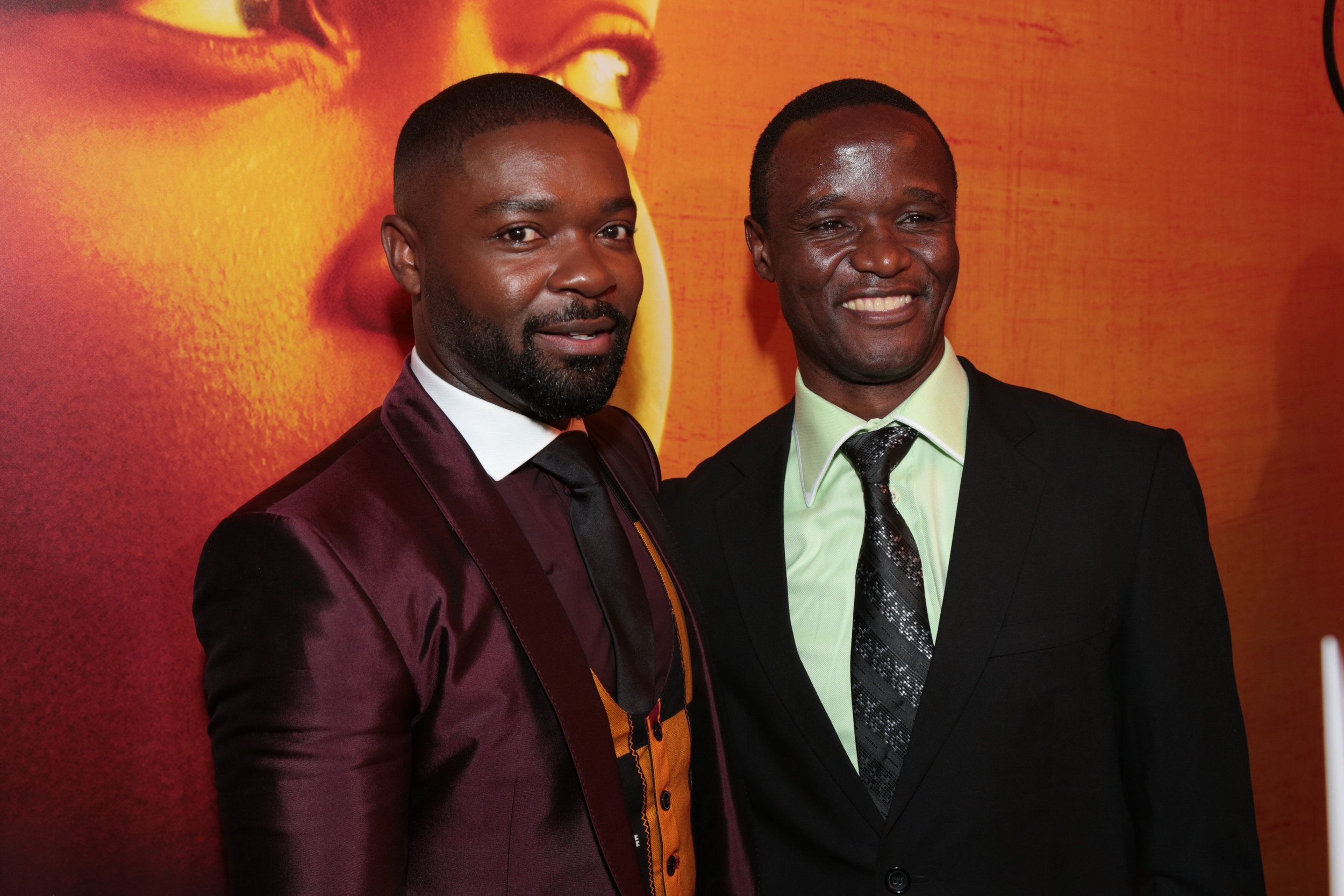
What was it like working with Madina and David who played you in the film? Did you work closely with them? How much did you get to coach your character on set?
Phiona Mutesi: Well, I wasn't on set. I met Madina once. We talked, and I ended up coaching her.
Robert Katende: I think I did more from the start. It's really very happy watching and, even on set, I think to me, it was more intimidating. That was a big challenge but, it was very free, very open, and he would come to me every time and say, 'Robert, anything you can find that is not in line, let me know.' He would come and say, 'Robert, how do you say this?' So I'd just go through his lines. In this celebration part when, Phiona won the tournament, I'm not fond of dancing, so I think I did give him an opportunity to dance.
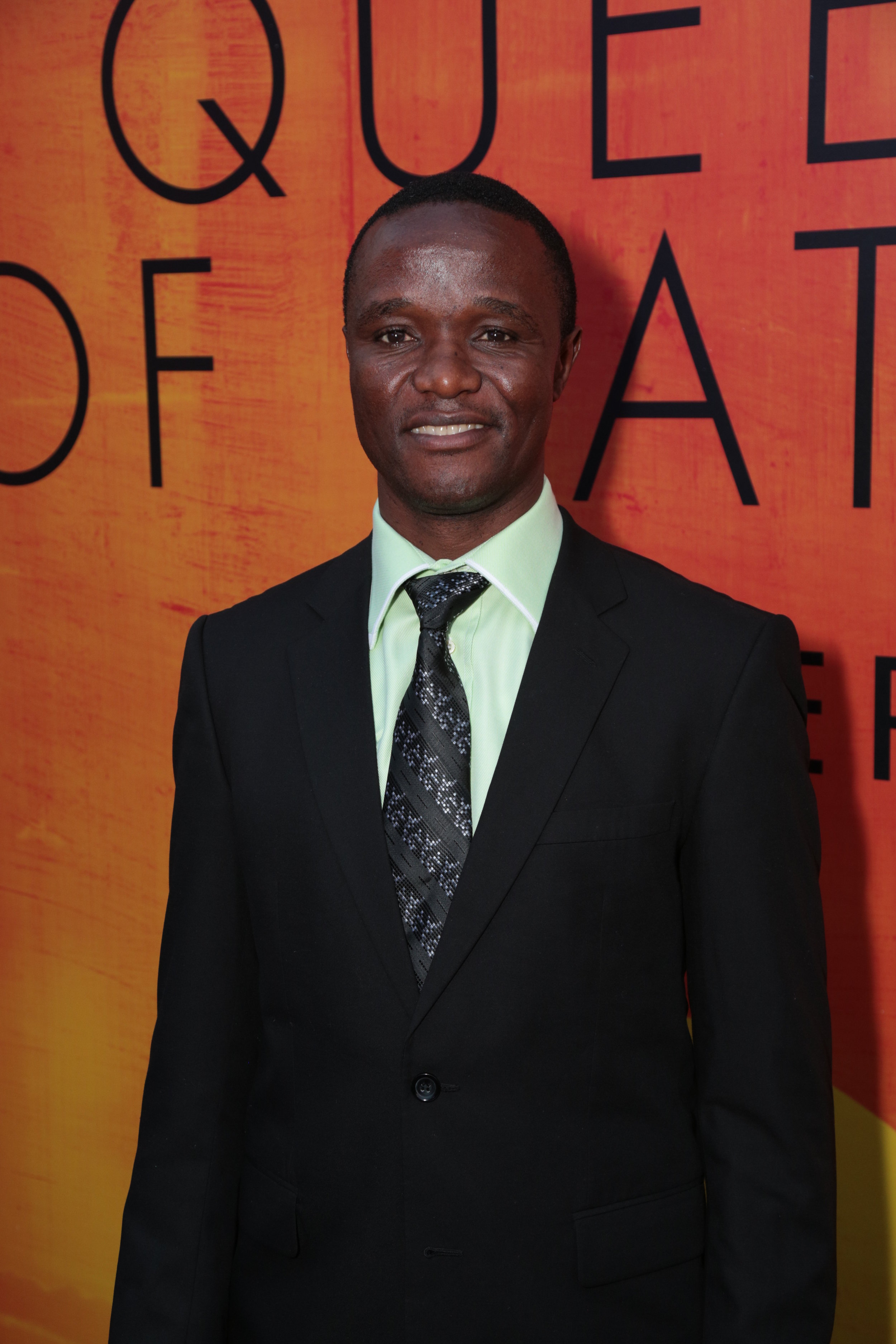
What has surprised you the most in bringing your story to the big screen?
Robert Katende: I would say the whole experience was quite surprising because it's something which I could never have imagined in my life. And two, it just proved to me a sense of awareness that you get encouragement of what you're doing because you step out to do this and I will find myself just doing that without even knowing, that it could be anything big, even in the country itself. So to me, that was remarkable because when I look back to my childhood, now the whole country will try to ask, where is Robert?
And yet before, I remember the times when I would even call radio stations seeking for support for education, and no one would ever bother. You've go to look for jobs and you will know no one knows you. So it's quite amazing to see that. That stands out to me.
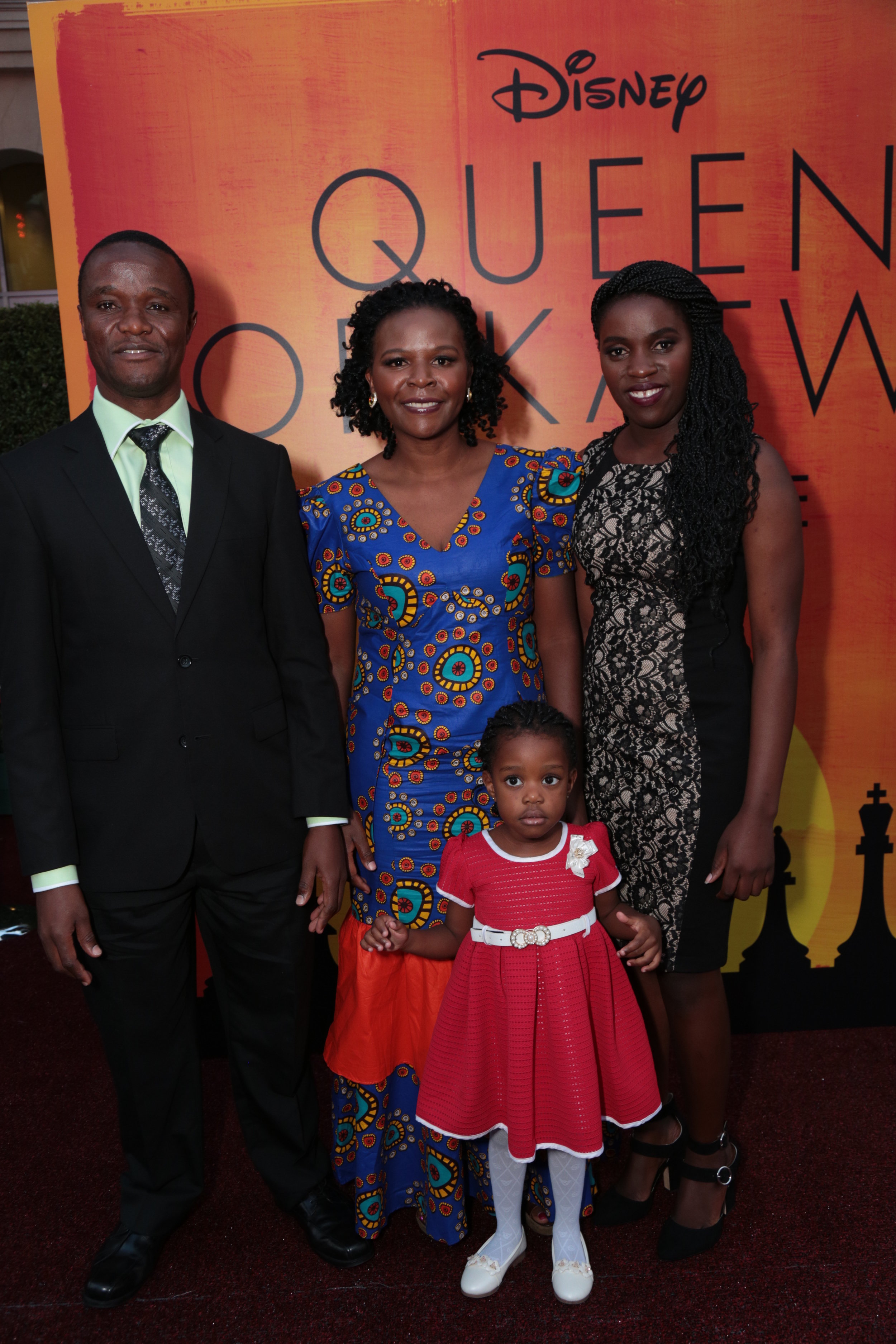
Robert Katende: And I'm so grateful for the ladies. It's quite interesting that even this house is full of them. I have a special place in my heart, right from my grandma, to my aunties, and I think it's the actual reason why God has given me my little girls.
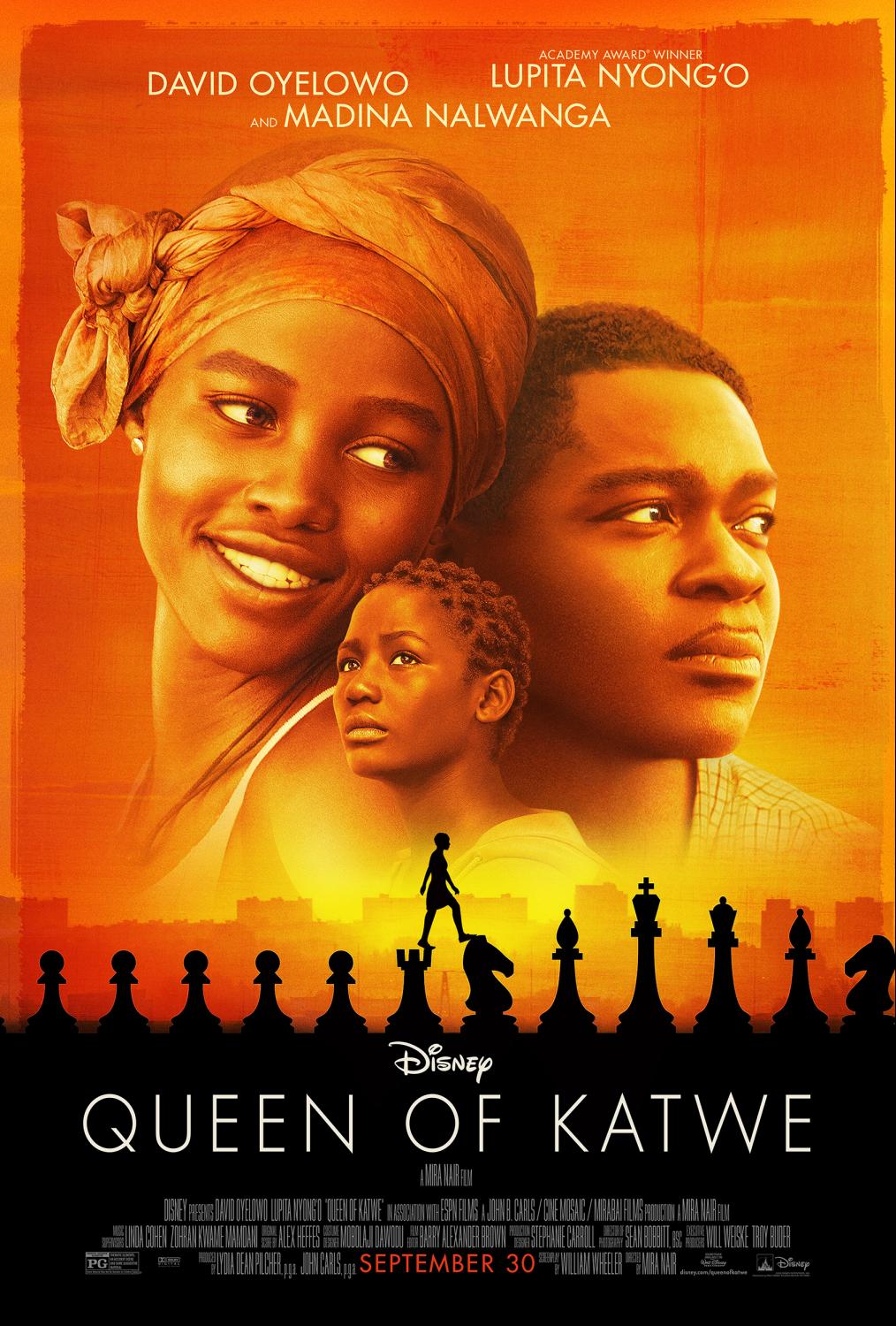
Queen of Katwe is now playing in theaters everywhere!
Queen of Katwe tells the vibrant TRUE story of Phiona Mutesi, a chess prodigy, who risks it all to follow her dreams to become a chess champion. Through her struggles, she is able to have hope and courage and is supported by her mentor, Robert Katende, her mother and family, and her community in Katwe, Kampala, Uganda. It is a story that is truly inspiring. The movie will make you laugh and cry and realize that you can do whatever you set your mind to. You must watch it this weekend!
More Queen of Katwe

